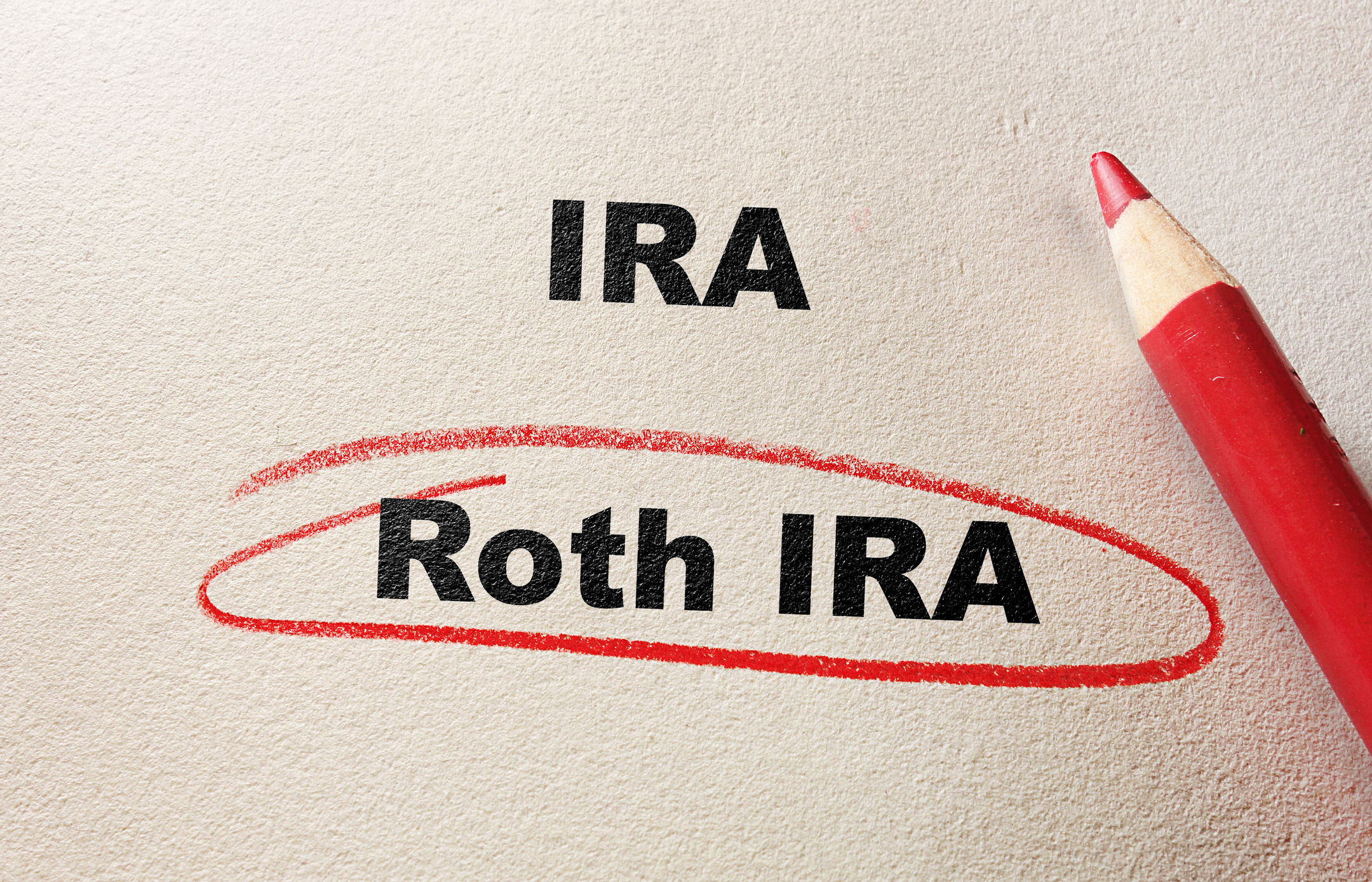Five Ways to Fund Medicare Part A
Higher taxes can help stave off the projected 2036 insolvency of Medicare's Hospital Insurance trust fund.


Profit and prosper with the best of Kiplinger's advice on investing, taxes, retirement, personal finance and much more. Delivered daily. Enter your email in the box and click Sign Me Up.
You are now subscribed
Your newsletter sign-up was successful
Want to add more newsletters?

Delivered daily
Kiplinger Today
Profit and prosper with the best of Kiplinger's advice on investing, taxes, retirement, personal finance and much more delivered daily. Smart money moves start here.

Sent five days a week
Kiplinger A Step Ahead
Get practical help to make better financial decisions in your everyday life, from spending to savings on top deals.

Delivered daily
Kiplinger Closing Bell
Get today's biggest financial and investing headlines delivered to your inbox every day the U.S. stock market is open.

Sent twice a week
Kiplinger Adviser Intel
Financial pros across the country share best practices and fresh tactics to preserve and grow your wealth.

Delivered weekly
Kiplinger Tax Tips
Trim your federal and state tax bills with practical tax-planning and tax-cutting strategies.

Sent twice a week
Kiplinger Retirement Tips
Your twice-a-week guide to planning and enjoying a financially secure and richly rewarding retirement

Sent bimonthly.
Kiplinger Adviser Angle
Insights for advisers, wealth managers and other financial professionals.

Sent twice a week
Kiplinger Investing Weekly
Your twice-a-week roundup of promising stocks, funds, companies and industries you should consider, ones you should avoid, and why.

Sent weekly for six weeks
Kiplinger Invest for Retirement
Your step-by-step six-part series on how to invest for retirement, from devising a successful strategy to exactly which investments to choose.
Getting the right tax advice and tips is vital in the complex tax world we live in. The Kiplinger Tax Letter helps you stay right on the money with the latest news and forecasts, with insight from our highly experienced team (Get a free issue of The Kiplinger Tax Letter or subscribe). You can only get the full array of advice by subscribing to the Tax Letter, but we will regularly feature snippets from it online, and here is one of those samples…
There’s decent news on the Medicare front. Notably, the Hospital Insurance Trust Fund (HITF) that's used to pay Medicare Part A benefits for recipients. The HITF is expected to be solvent for longer. According to current projections from Medicare trustees, the HITF would be able to fully pay scheduled benefits until 2036, five years later than last year’s forecast. That’s because federal payroll taxes fund the HITF, and the number of covered workers who pay the taxes, and their average wages, are forecasted to be higher. The HITF is mainly funded by Medicare taxes. And currently, there are three Medicare taxes:
- First, a 1.45% Medicare tax is levied on both employees (through payroll tax withholding) and employers with respect to workers’ wages and salaries, with no cap on taxable earnings.
- Second, a 2.9% Medicare tax is imposed on people with self-employment earnings, again with no cap.
- Third, individuals pay an additional 0.9% Medicare surtax once their wages and/or self-employment income exceed $200,000 for single filers and $250,000 for joint filers. This extra 0.9% surtax does not hit employers.
Despite the good news, experts are always looking to shore up the HITF. Let’s look at ideas to raise revenues. Not surprisingly, they involve tax hikes.
From just $107.88 $24.99 for Kiplinger Personal Finance
Become a smarter, better informed investor. Subscribe from just $107.88 $24.99, plus get up to 4 Special Issues

Sign up for Kiplinger’s Free Newsletters
Profit and prosper with the best of expert advice on investing, taxes, retirement, personal finance and more - straight to your e-mail.
Profit and prosper with the best of expert advice - straight to your e-mail.
1. President Biden wants to hit upper-income individuals with more taxes.
He would hike the current 0.9% Medicare surtax imposed on employees and self-employed people to 2.1% for taxpayers with over $400,000 of earned income.
2. He also wants to raise the net investment income tax rate from 3.8% to 5% on individuals with modified adjusted gross incomes over $400,000. The 3.8% NII tax now applies to singles with modified AGIs over $200,000, or $250,000 for joint filers. Biden would also expand the tax to cover more business income than it currently does.
3. Biden would also redirect NII tax revenues to Medicare’s HITF.
Though enacted under Obamacare, money from the NII tax has gone into general revenue for years.
4. Here’s a somewhat controversial idea set forth by some think tanks: Have workers pay Medicare tax on employer-paid health insurance.
Employer-paid health premiums are now excluded from an employee’s taxable wages. The tax exclusion for these health benefits is very costly, and either eliminating it or narrowing it can generate lots of revenue that can help support the HITF. One option is to subject all or part of the employer-paid insurance premiums to the 1.45% and 0.9% Medicare taxes paid by employees. A limited approach would impose these Medicare taxes only on employer-paid insurance of high earners.
5. Imposing an excise tax on sugary beverages has also been suggested.
For example, levying a federal excise tax of three cents per 12 ounces of sodas and other sugar-sweetened beverages and dedicating the revenues to the HITF.
Lawmakers have lots of time to flesh out revenue and cost-saving options to secure the HITF’s future. Let’s hope they don’t wait until the last minute to act.
This first appeared in The Kiplinger Tax Letter. It helps you navigate the complex world of tax by keeping you up-to-date on new and pending changes in tax laws, providing tips to lower your business and personal taxes, and forecasting what the White House and Congress might do with taxes. Get a free issue of The Kiplinger Tax Letter or subscribe.
Profit and prosper with the best of Kiplinger's advice on investing, taxes, retirement, personal finance and much more. Delivered daily. Enter your email in the box and click Sign Me Up.

Joy is an experienced CPA and tax attorney with an L.L.M. in Taxation from New York University School of Law. After many years working for big law and accounting firms, Joy saw the light and now puts her education, legal experience and in-depth knowledge of federal tax law to use writing for Kiplinger. She writes and edits The Kiplinger Tax Letter and contributes federal tax and retirement stories to kiplinger.com and Kiplinger’s Retirement Report. Her articles have been picked up by the Washington Post and other media outlets. Joy has also appeared as a tax expert in newspapers, on television and on radio discussing federal tax developments.
-
 Now Is the Time to Start Designing Your 2027 Retirement
Now Is the Time to Start Designing Your 2027 RetirementThis is when you should be shifting your focus from growing your portfolio to designing an income and tax strategy that aligns your resources with your purpose.
-
 Reduce Stress With a Layered Approach for Your Retirement Money
Reduce Stress With a Layered Approach for Your Retirement MoneyTo be confident about retirement, consider building a safety net by dividing assets into distinct layers and establishing a regular review process. Here's how.
-
 The New Reality for Entertainment
The New Reality for EntertainmentThe Kiplinger Letter The entertainment industry is shifting as movie and TV companies face fierce competition, fight for attention and cope with artificial intelligence.
-
 Medicare Open Enrollment Blog 2026: Options if You Missed Open Enrollment
Medicare Open Enrollment Blog 2026: Options if You Missed Open EnrollmentInformation you can use year-round to manage your Medicare needs.
-
 Tax Rule Change Could See Millions Lose Health Insurance
Tax Rule Change Could See Millions Lose Health InsuranceThe Kiplinger Tax Letter If current rules for the health premium tax credit (PTC), a popular Obamacare subsidy, aren't extended, 3.7 million people could lose their health insurance.
-
 The IRS is in Chaos
The IRS is in ChaosThe Tax Letter DOGE, departures, data agreements and more are creating havoc at the IRS.
-
 Should You Do A Roth IRA Conversion? Nine Things to Consider
Should You Do A Roth IRA Conversion? Nine Things to ConsiderThe Tax Letter Thinking of converting a traditional IRA to a Roth IRA? The Kiplinger Tax Letter Editor highlights nine factors you should consider before making a move.
-
 What DOGE is Doing Now
What DOGE is Doing NowThe Kiplinger Letter As Musk's DOGE pursues its ambitious agenda, uncertainty and legal challenges are mounting — causing frustration for Trump.
-
 Expiring Business Tax Breaks And Trump's Tax Plan
Expiring Business Tax Breaks And Trump's Tax PlanThe Tax Letter Four important business tax breaks are likely to be a part of President Trump's tax plan. We'll break them down for you.
-
 AMT and Pass-Throughs Add Complex Layers to 2025 SALT Tax Planning
AMT and Pass-Throughs Add Complex Layers to 2025 SALT Tax PlanningThe Tax Letter The state and local tax (SALT) deduction is a key sticking point in President Trump's tax plan.
-
 Popular Tax Breaks Are in Danger
Popular Tax Breaks Are in DangerThe Tax Letter A number of tax breaks, including the home mortgage interest deduction, are in peril as lawmakers hunt for revenues to pay for the President's tax plan.